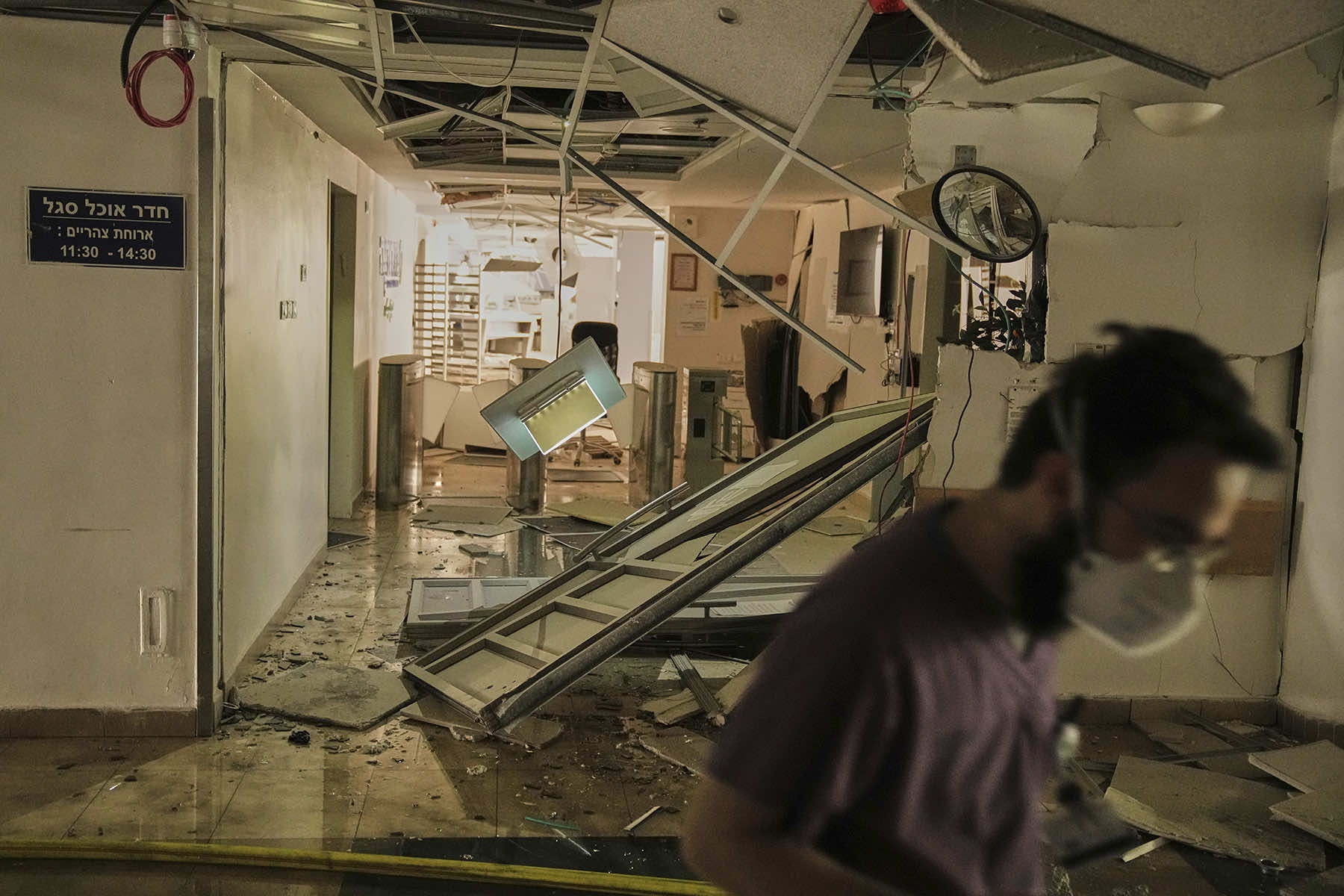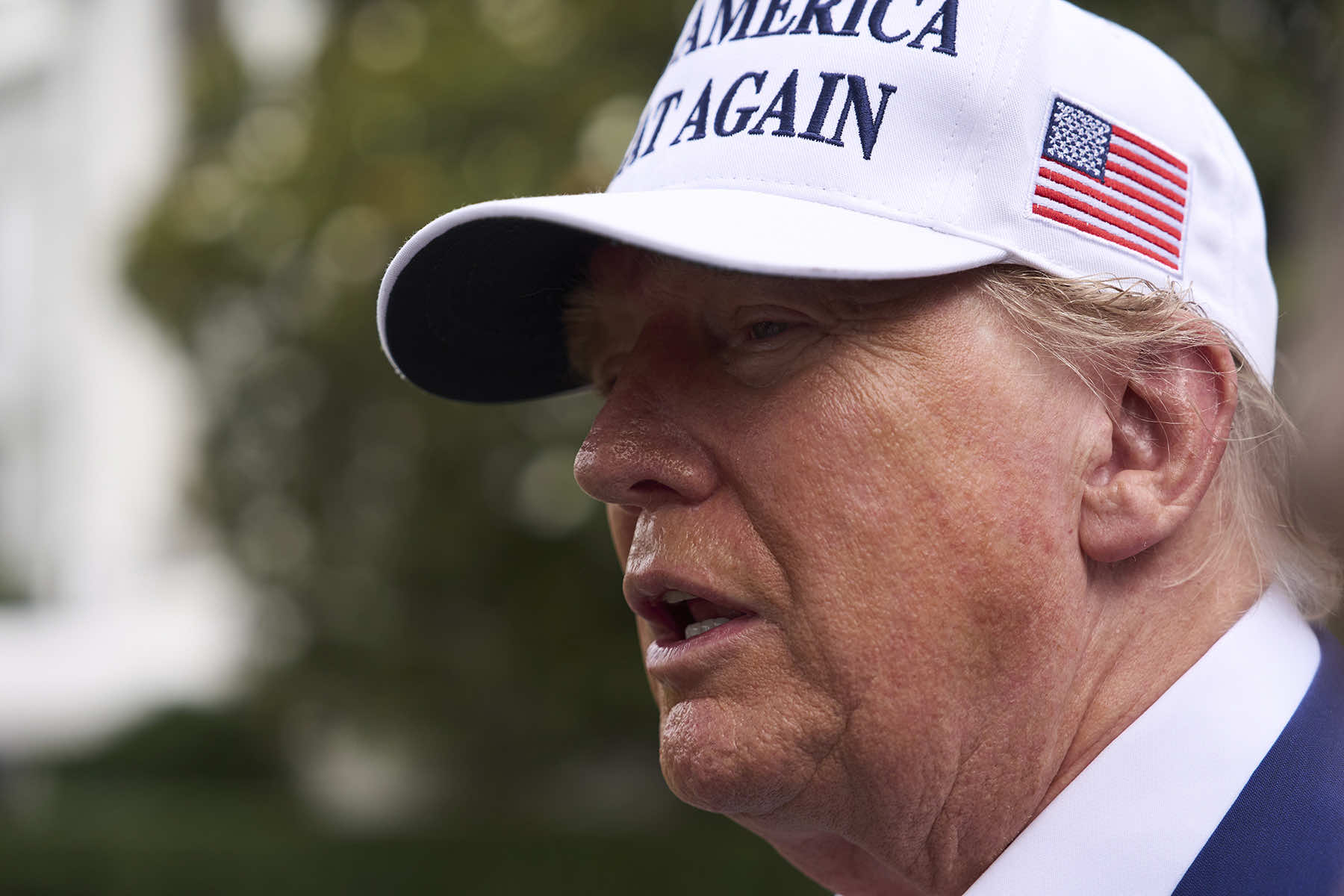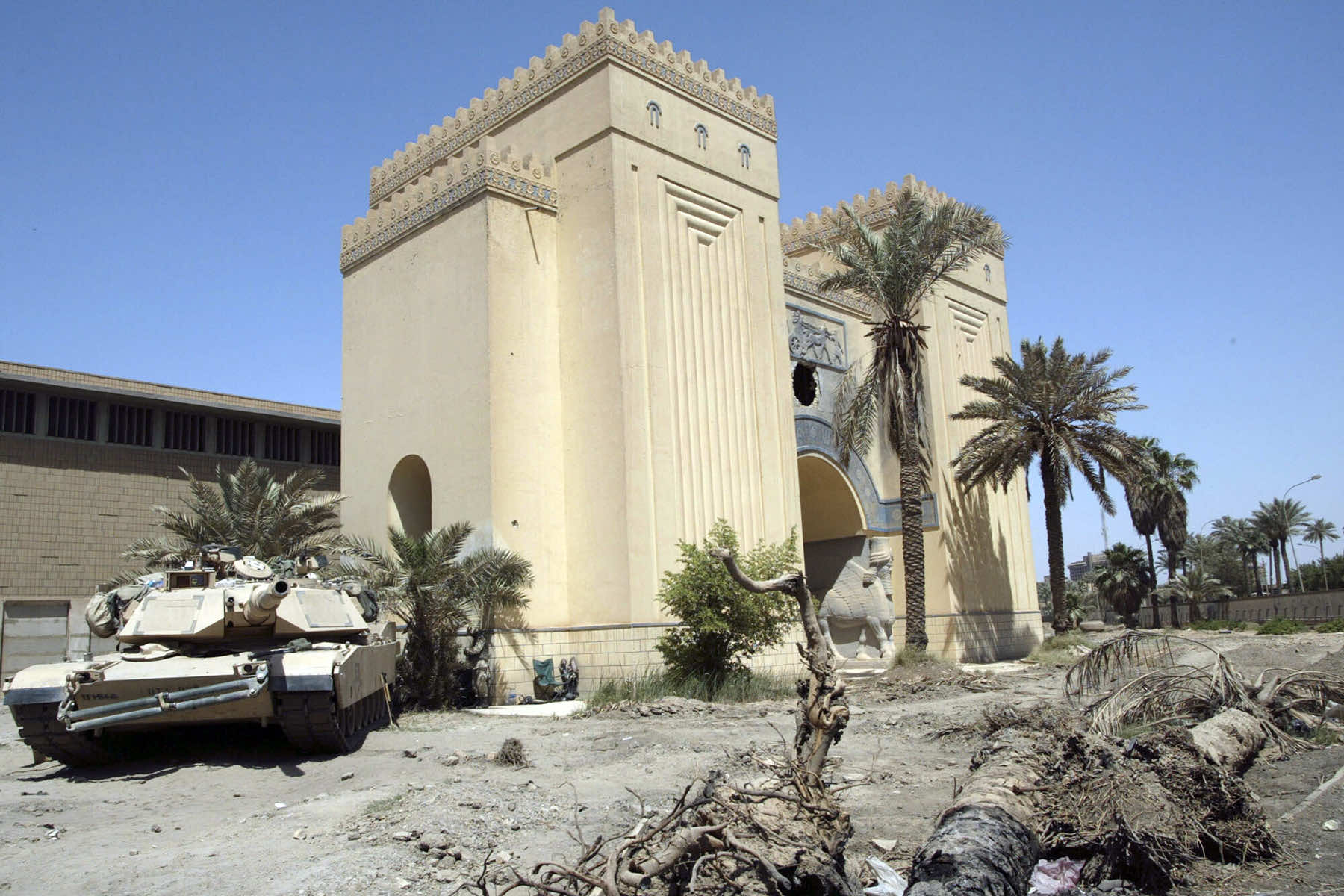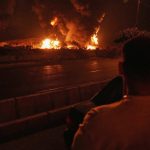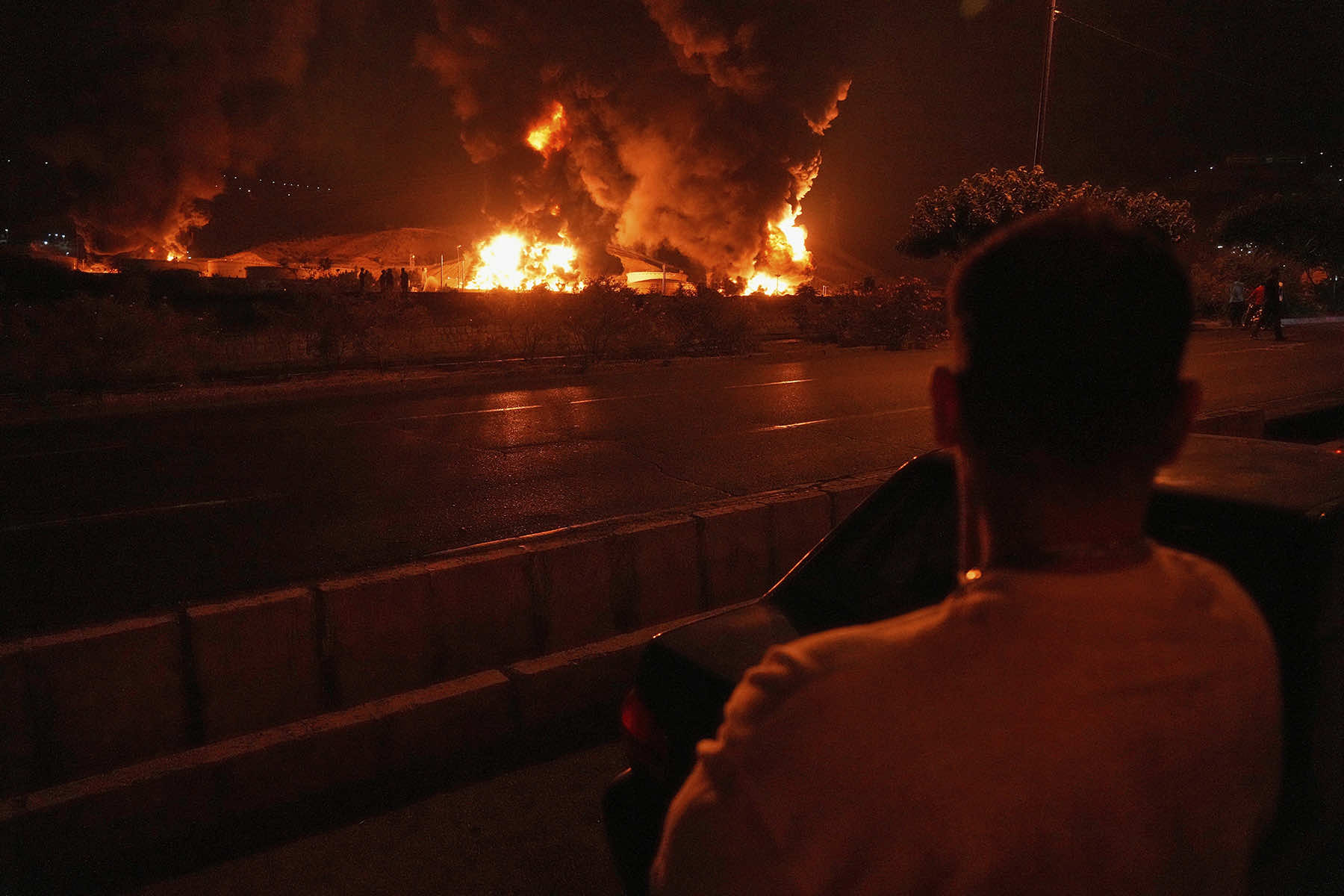
Donald Trump’s calls for Iran to surrender “unconditionally” have drawn sharp warnings from Tehran and stirred growing fears of deeper U.S. military involvement, as Israeli warplanes continue to bombard Iran without a formal declaration of war.
Despite a U.S. intelligence consensus that Iran is not building a nuclear weapon, Trump has aligned himself with Israeli Prime Minister Benjamin Netanyahu, ignoring assessments from his own intelligence director and instead echoing Netanyahu’s hardline and unsupported claims.
The conflict, now entering its second week, began with a surprise Israeli aerial campaign targeting Iran’s nuclear and military infrastructure. Netanyahu did not formally declare war before launching dozens of strikes on Tehran and other cities.
Israeli officials claim that the attack aimed to cripple Iran’s nuclear program. Iranian authorities say more than 260 civilians are among the 639 dead from the air raids as of June 19, and that number is expected to rise.
Iran’s Supreme Leader Ayatollah Ali Khamenei publicly rejected Trump’s demand for surrender on June 18, warning, “Americans should know that any military involvement by the U.S. will undoubtedly result in irreparable damage to them.”
In a video released by Iranian state media, Khamenei dismissed Trump’s statements as “threatening and absurd,” and said the Iranian people would not bow to foreign coercion.
“Wise individuals who know Iran, its people and its history never speak to this nation with the language of threats, because the Iranian nation is not one to surrender,” he said.
Trump’s call for an “unconditional surrender” is legally incoherent and reflects both his arrogance in assuming he has such power and his lack of historical awareness about the term’s reference and context.
Surrender presumes a state of war, but neither the United States nor Israel has formally declared one. Without that, the demand carries no binding force. It is a political posture, not a position. The contradiction exposes the chaos at the heart of Trump’s messaging, where threats replace strategy and law is an afterthought.
Initially seeking distance from Israel’s first strikes, Trump has veered toward endorsing a wider war.
“I want something much bigger than a ceasefire,” he said.
U.S. warships and bombers have since moved closer to the region, and American diplomats have begun leaving Israel amid growing concerns of escalation. The U.S. Embassy in Jerusalem began voluntary evacuations on June 18, just hours before Trump’s ambassador issued a warning for private citizens to leave.
“I may have some people that are a little bit unhappy now, but I have some people that are very happy, and I have people outside of the base that can’t believe that this is happening, they’re so happy,” Trump said.
Trump’s eagerness to match Netanyahu’s aggression comes despite clear intelligence assessments that contradict his claims.
Earlier this year, national intelligence director Tulsi Gabbard testified to Congress that Iran was not actively developing a nuclear device.
“Iran is not building a nuclear weapon and Supreme Leader Khamenei has not authorized the nuclear weapons program he suspended in 2003,” Gabbard said.
She added that although uranium enrichment had reached unprecedented levels for a non-nuclear state, there was no evidence of a weapons push.
Still, Trump dismissed Gabbard’s assessment during a flight back to Washington after cutting short his appearance at the G7 Summit.
“I don’t care what she said,” he told reporters. “Iran is very close.”
That assertion put him squarely in line with Netanyahu, who has for years claimed a nuclear-armed Iran is imminent without offering proof.
Senator Chris Van Hollen, a Democrat from Maryland, condemned Trump’s handling of the crisis and accused the president of being outsmarted by Israel’s leader.
“Trump has made his administration a subcontractor, a junior partner to Netanyahu,” Van Hollen said.
Senator Van Hollen was also alarmed that the U.S. could get “dragged deeper and deeper into this war,” with no understanding of the long-term consequences.
Behind the scenes, U.S. military officials have warned that airstrikes alone will not bring stability. Lessons from Iraq, Afghanistan, and Libya suggest that toppling governments or degrading their military capacity by force often creates prolonged chaos.
Israeli jets may succeed in targeting Iranian air defenses and missile sites, but they would still leave behind a sprawling and deeply embedded Revolutionary Guard, a vast network of Basij paramilitary forces, and millions of civilians caught in the crossfire.
Inside Trump’s political base, the backlash was quick to begin and intensify. Prominent figures in the MAGA movement have voiced dismay over his drift toward another Middle East conflict, contradicting his endless campaign pledges to avoid “stupid, endless wars.” Trump’s entire “America First” mantra was focused on ending foreign entanglements.
While Trump continues to insist that his supporters are “more in love with me than ever,” prominent voices such as Marjorie Taylor Greene, Tucker Carlson, and Charlie Kirk have been critical spoken out sharply, saying the president is risking the coalition that helped deliver his reelection. No issue currently divides the right as much as foreign policy.
Critics within the GOP also warn that Trump’s decision to reengage militarily in the Middle East may alienate both isolationist conservatives and moderate voters ahead of the 2026 midterms.
Meanwhile, European diplomats are preparing to meet with Iran in Geneva to try to salvage the remnants of diplomatic engagement. Neither the United States nor Israel is expected to participate in the talks.
Russia has offered to mediate, with its dictator, Vladimir Putin, suggesting that Iran’s peaceful nuclear ambitions could be accommodated in a negotiated settlement. But Iran’s potential collapse, politically, economically, or militarily, would deal a blow to Moscow, which relies on Tehran as a regional partner and arms supplier in Ukraine.
Israel’s escalation has not only decimated swaths of Iran’s infrastructure but also created an opening for Netanyahu to consolidate political power at home. After months of domestic unrest and corruption allegations, Netanyahu has pivoted sharply to a wartime posture, using the conflict to deflect internal criticism and reframe his leadership as indispensable.
Trump has become a convenient instrument in that effort. Senior U.S. officials have expressed concern that Netanyahu is baiting Washington into deploying American forces.
Israel’s defense ministry has requested advanced munitions, including bunker-buster bombs, and floated the idea of U.S.-Israeli joint operations to finish off what remains of Iran’s nuclear capacity.
Defense Secretary Pete Hegseth told lawmakers on Capitol Hill that the Pentagon was providing Trump with possible options on Iran but would not say whether the military was planning to assist with Israeli strikes.
Despite Trump’s public bravado, his administration has not defined a clear objective. National Security Council staff have reportedly offered conflicting views on how far the U.S. should go. Some favor limited support to Israel, others advocate for diplomatic offramps.
But Trump, as usual, has cast himself as the sole decider. “Nobody knows what I’m going to do,” he said.
That uncertainty is stoking anxiety across capitals and within the president’s own orbit. Former strategist Steve Bannon, still a voice of influence in MAGA-aligned circles, warned that military escalation would “blow up the coalition” that carried Trump back to the White House.
Trump’s contradictory messaging, calling for Iran’s unconditional surrender while lamenting that “they should have done the deal,” underscores the strategic incoherence of his approach.
It was Trump himself who unilaterally scrapped the original Iran nuclear deal in 2018, a move that set the stage for the current crisis. His administration has since demanded more concessions from Tehran while offering less in return.
Iran, for its part, has made clear it will not capitulate. Khamenei, backed by Foreign Ministry officials, insists that uranium enrichment will continue for peaceful purposes and that Iran reserves the right to defend itself.
Iranian television was briefly taken offline on June 18 in what officials described as an Israeli cyberattack, prompting renewed fears of hybrid warfare spiraling out of control.
Internet access inside Iran collapsed shortly after, and many Iranians are now fleeing the capital. Witnesses described powerful explosions rocking neighborhoods across Tehran, with smoke rising from strikes on Revolutionary Guard installations and suspected nuclear facilities.
Yet as Iran’s missile retaliation has diminished, casualty figures continue to mount. Israeli officials said 24 people have been killed in their territory by Iranian missiles and drones.
The Israeli military says it will continue its operations “for as long as necessary,” a vague directive that critics warn could become a permanent campaign. With no clear exit plan, and U.S. military assets accumulating in the region, the risk of open-ended conflict is growing.
Meanwhile, Netanyahu’s video appeals to the Israeli public, featuring praise for Trump, are now a regular fixture of wartime propaganda. He has lauded the U.S. president as “a great friend of Israel,” crediting Trump with helping defend Israeli skies and “sending the right message” to Tehran.
But analysts warn that Netanyahu’s flattering rhetoric masks a colder calculation. Trump’s eagerness to project strength has made him vulnerable to such vain manipulation. By tying U.S. prestige to Israel’s success, Netanyahu raises the cost of disengagement and raises the odds that American troops could soon be deployed.
What began as an undeclared Israeli campaign now edges closer to regional war, with the White House at its most volatile. Intelligence agencies warn of growing instability. Allies are left guessing at America’s intentions.
And Trump, obsessed with image and his cult of loyalty, refuses to acknowledge the fractures beneath him that may soon widen into something far more dangerous than his usual political drama.

